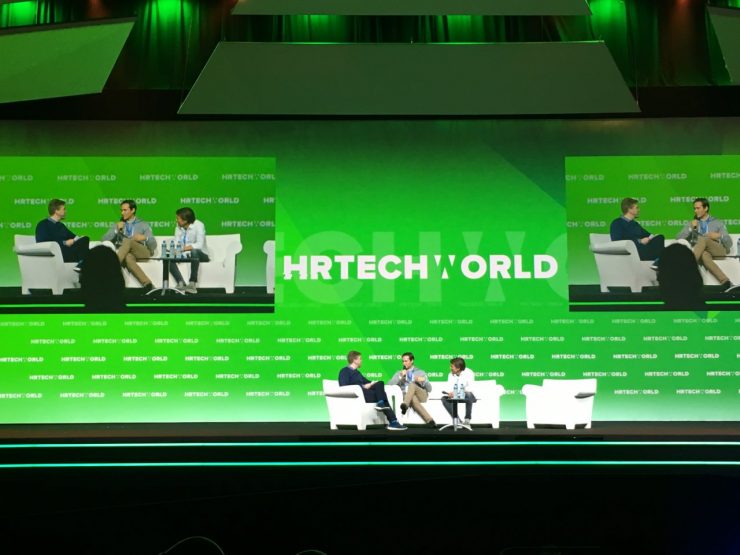Takeaways from HR Tech World Amsterdam’s Panel ‘How to Catch a Unicorn’ moderated by VP of Global Operations at SmartRecruiters and Co-Founder and CEO of Jobspotting Robin Haak with guest speakers Chris Hall (Founder and CEO of Bynder), and Niklas Östberg (Co-founder and CEO of Delivery Hero).
Unicorns aren’t just important because of their capital, these companies represent technology that has changed the way we live, work and communicate. These technologies have had that special spark of creativity which asks us to change our model for processing information. Which is why we care about the people behind them!
These innovators impact the way we all do business and now we get to hear from them on what’s important when it comes to HR Tech and Recruitment.
How do you find good people?
Chris: We find employee referrals are really important in this respect – Good people know good people. When you start with an A team it becomes a self-perpetuating cycle of hiring success.
We have one in-house recruiter but it’s important that leaders are involved in hiring their own team. We’ve grown considerably in the last year but it’s never been about headcount – the process is organic.
What has been the most challenging moment for you in HR?
Niklas: HR is about people. We’ve had moments of luck and moments of work but the hardest moments are when a valued member of a team moves on. A good team that you can lean on in times of difficulty helps lighten the load of stress that comes with running a startup. You know it’s a good team when you drive and support each other and it can feel really lonely or disheartening when that ends.
Remote work. Future of business or death of company culture?
Chris: We were all nervous embarking on our first ‘Remote Week’. We shut down the offices and everyone stayed home, we honestly didn’t know how it would turn out but we were actually very pleased with the results. The daily conference call made us feel like more of a company than ever before and I found people were more purposeful with their meeting time when working remotely. However, there are some things about face to face interaction that cannot be totally replaced. Balance!
Niklas: It’s funny because I have a schedule where I fly home to Switzerland on Thursday nights and work from home Fridays but if another employee asked me to do the same thing I’m not sure I’d let them. Fridays are my saddest work days, I like being around people – it’s dynamic! – It’s Energizing! I think water cooler culture is important and I even when I utilize the new technology I don’t want to lose that.
Millennials. Energetic and savvy or impatient and over-confident?
Niklas: Millennials come with a drive to impact the comp
anies they work for. They want to feel engaged from day one with measurable achievement and opportunities for growth. Some companies don’t have the internal structure for visible impact or short-term goals and those businesses may have a hard time retaining millennials because these Generation Y candidates won’t hesitate to jump ship.
Chris: There’s impatience, there’s overconfidence but there’s also energy! I’m not sure I would totally box it by age but there are trends among millennials entering the workforce. For example,
millennials expect greater autonomy and flexibility. I think flexible work is a great way to attract engage millennials and get the most out of the new technology that’s out there. Face to face time is by no means obsolete but at the same time, we can tweak traditional working habits to make sense for Generations Z and to get the most out of the tools we have today.
AI. A real solution for hiring or just a buzzword?
Niklas: I hear a lot of conjecture in the field of AI. Everyone is either scared or excited or both for the future it could bring but I’ve yet to see most things come to fruition. On the ground, we are still pouring over spreadsheets in our HR department.
The thing that makes me doubtful is that we need such a massive amount of data which few companies have or are even building. I think we are behind where we need to be. I want to see us break away from old school matchmaking with outdated CVs and into a more streamlined future.
Chris: I see some of the same problems. The volume of candidates has increased but not the quality of matching. It’s easier to apply for jobs now but not necessarily easier to find the right talent. Europe is lagging in a big way and I think it has a lot to do with how difficult it is to give a monetary incentive to top talent.
I also worry that AI would make us lose out on anomaly candidates and we would end up with a bunch of clones. Most of my employees are expats with imperfect CVs and I wonder if they would have been filtered out.






